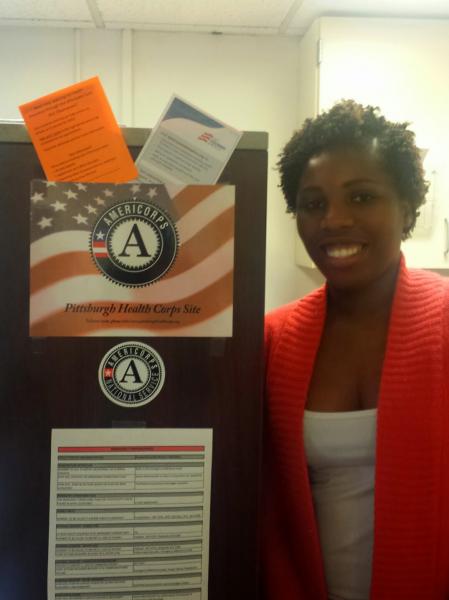Small Steps Lead to Big Changes
When I began my first week of service at the Program for Health Care to Underserved Populations/Birmingham Free Clinic, I remember one thing: an overwhelming feeling of excitement. I knew that not only was I contributing to the overall mission of providing and improving access to high quality health care in my community, but that I would be able to use my position as a platform to facilitate change through my own actions.
Serving at the clinic I am always amazed at our ability to refer patients to specialty care or outside health resources that are not available on site. Over the years, this has been achieved through collaboration between the previous AmeriCorps members and Primary Health Care for Underserved Populations/Birmingham Free Clinic staff with the creation of resource guides, health education materials, etc. For instance, dental care is not a service offered at the clinic. Therefore, if a patient requests that service, we are able to use our resource guides to refer the patient to locations across the city. Occasionally, we may have a patient request a service that we may not have information about. As a Patient Advocate, I investigate the need and try and find solutions for it. In other words, the phrase “I don’t know” is not in my vocabulary.
After a few months serving at my site, I noticed that one service patients frequently inquired about was applying for health insurance through the Affordable Care Act. Initially, I simply provided patients with a paper that detailed the names and phone numbers of organizations in Pittsburgh that could help them throughout the enrollment process. I soon realized through conversations with patients, and my own observations, that those sheets were not being utilized effectively. In other words, sometimes patients lost the paper, did not understand the process, or they simply did not contact the organizations.
Ideally, becoming a Certified Application Counselor (CAC) to help patients navigate the process would be useful, but due to time constraints at the clinic, it is currently not a feasible option. Therefore, with open enrollment beginning in November, I tried to find a way to quickly circumvent that issue.
In October, I was contacted by a representative from Get Covered America (GCA), a nonprofit organization that connects individuals to resources regarding health insurance options, about creating a partnership that incorporates the use of their informational cards. These cards include information on GCA’s mission, how patients can get free help-online, by phone or in person, and a section that allows the patient to write their information as well as a place for them to sign their name allowing GCA to contact them. Each week a representative from GCA picks up the cards from the clinic and contacts those individuals about setting up an appointment at a local agency that has CACs.
I attach these cards to the registration paperwork during visits. After the first few weeks, I noticed that patients were not completing the cards and sometimes I did not have a chance to speak to individuals to find out why. Therefore, I created my own short survey of reasons why a patient may not be interested in signing up and attached it to the cards. I learned that some patients were either expecting insurance soon through their employers, already applied, would rather pay the fine, want more information, etc. I use this survey to talk to patients individually about their situation.
To date, over 100 patients have come into contact with these informational cards and the list continues to grow. A few of our patients have chosen health plans and are in the process of obtaining their coverage. In taking on this new independent project, my main goal for this project was to educate patients about their options regarding health care. Through distributing the cards, surveying patients, and having meaningful discussions about insurance, I realized I was not only educating patients but empowering them to be more proactive in regards to their own health. Access to effective healthcare is the first step towards a better life, and my project helping my patients get enrolled in healthcare hopefully means they can live better, healthier lives!
